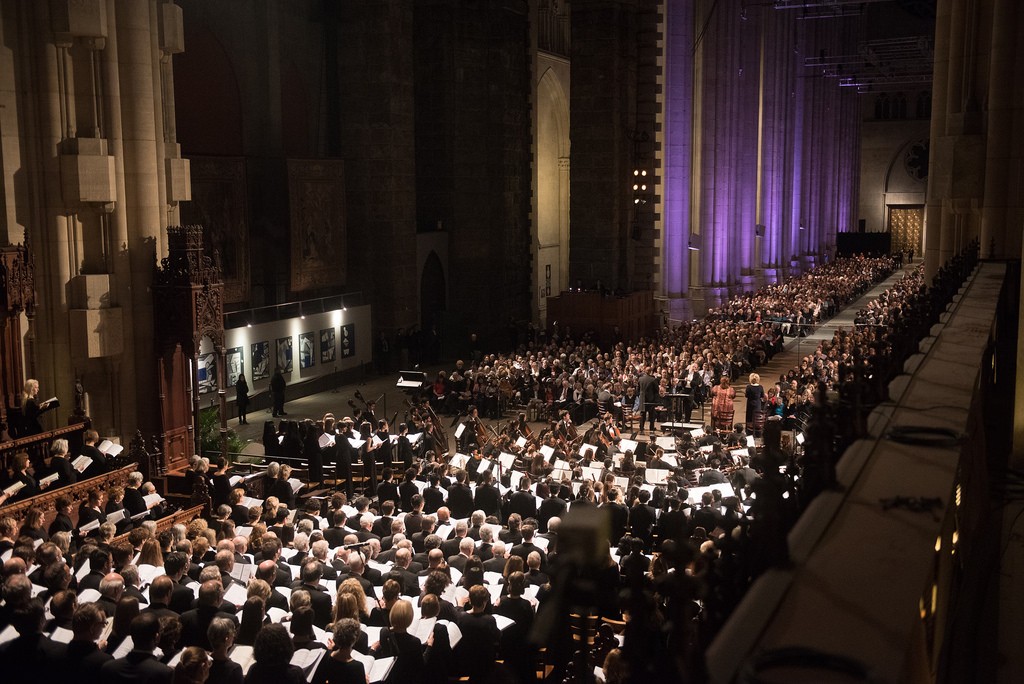Opera News has just profiled the extraordinarily busy Kent Tritle, who directs the choirs of St. John the Divine in New York as well as directing Musica Sacra and the Oratorio Society and teaching at Juilliard and the Manhattan School – besides playing quite a bit of organ.
One might think that his workload was sufficiently heavy, but this season, Tritle has decided, at fifty-five, that it’s time to add Mahler’s enormous Symphony No. 8 to his large repertory of choral works.
Tritle has never conducted this eighty-minute score, which fuses an ecstatic setting of the medieval hymn “Veni Creator Spiritus” with an almost operatic approach to scenes from the conclusion of Goethe’s Faust in a magnificent, Mahlerian celebration of redemption. But he has played the work’s organ part in performances led by Lorin Maazel and Leon Botstein, so he is keenly aware that the work’s structure and proportions—to say nothing of the complexities of Mahler’s scoring for multiple choirs, a large orchestra (with an offstage brass ensemble) and soloists—make it a monster to hold together, let alone interpret persuasively.
Tritle says the Mahler 8 has been on his bucket list, and he plans to conduct it as a collaboration between the Manhattan School and St. John the Divine, in the St. John the Divine space, to be performed on February 25 after just under two weeks of rehearsals with around 360 musicians (Mahler premiered it with 1,030).
“I think the work’s redemption theme is very powerful,” says Tritle, who has spent most of his career leading sacred music, first as the founder of the acclaimed Sacred Music in a Sacred Space series at the Church of St. Ignatius Loyola, which he led from 1989 to 2011, when he left for the Cathedral. “The ‘Veni Creator’ is almost a testimony to the power of the Spirit. Then the bottom falls out, and we’re in a more personal tale of someone who has sold his soul to the Devil but is redeemed. Then Mahler seizes on the idea of using the ‘Veni Creator’ again at the end and tucking it into his theme. He’s integrated all this in pretty incredible ways.”
St. John the Divine’s live acoustics will be one of the biggest challenges, so he and Carnegie Hall recording studio manager Leszek Wojcik will borrow some tricks they used with a performance of the Faure Requiem in the same space, using “a tiny bit” of sound system enhancement to improve clarity.
Beyond that, the critical element is timing. Maybe you let the music breathe in a way you wouldn’t in Carnegie.
Photo by Brian Hatton: Tritle conducting Verdi in St. John the Divine

